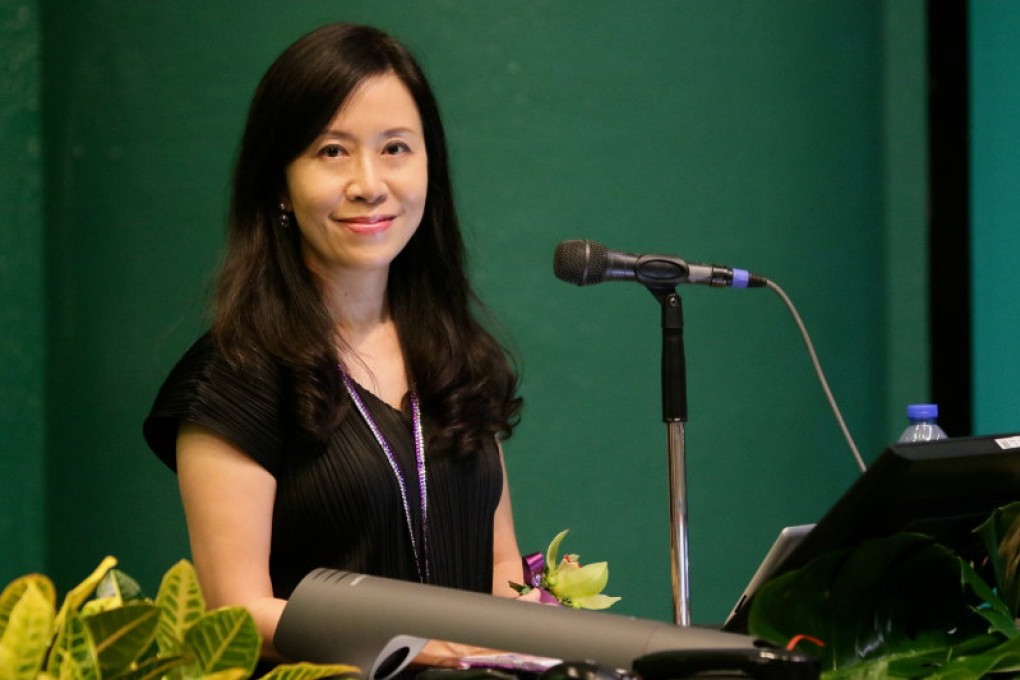Kellogg-HKUST EMBA places a premium on collaboration
The Kellogg-HKUST Executive MBA Programme has become a competitive and internationally recognised program over the last two decades. It has consistently achieved high rankings in educational surveys, and these results reflect the care that has gone into designing the courses.

The Kellogg-HKUST Executive MBA Programme has become a competitive and internationally recognised program over the last two decades. It has consistently achieved high rankings in educational surveys, and these results reflect the care that has gone into designing the courses. The EMBA is a joint venture between the Hong Kong University of Science and Technology ( HKUST ) and the US-based Kellogg School of Management, the business school of Northwestern University.
“18 years ago, the programme wasn’t so well known, but now HKUST is an up-and-coming university. We have a great faculty which has a strong knowledge of Asia, and that is vital in today’s business world,” says Programme Director Judy Au.
As a joint venture, 50 per cent of the faculty comes from the Kellogg School of Management, something which brings students the best of East and West. This global approach is the main reason for the Kellogg-HKUST EMBA’s international success, says Au. “The programme has changed and developed, and this is reflected in the strength of candidates applying. They really have to prove why they should be successful in their application,” she adds.
EMBAs attract students who are already in executive position, so candidates typically range from those in their thirties to those in their fifties. “Our candidates have about 16 years of experience, on average. This is vital, as we expect quality peer-to-peer sharing,” Au says.
The majority of students are already well-positioned on the corporate ladder, and want to give their careers a nudge to become a General Manager or CEO. Typical professions include accountants, lawyers, and IT experts, although anyone can apply – a cosmetic surgeon is a member of this year’s class, for instance. Applicants share a common belief that it’s essential to learn about other areas of industry to achieve the wisdom to become better managers and advance their careers.
Sharing is more than just a cursory part of the student experience. Au says it’s an important part of the success factor at Kellogg-HKUST, and the presence of international students ensures that the sharing has global content. “When we started running the programme, we expected to attract people who were about four hours away by air, from places like Bangkok and Shanghai,” Au says. Today students come from further afield, like Rome, Paris, and Perth in Australia. “62% of our students in the current class fly in to join us,” she says. “This diversity means that students have so much more to share.”
Au says that it’s important that students are willing to collaborate with each other in the classroom. Potential students have to compete for a place at the college, but the learning itself should not be competitive. “We don’t place any importance on how senior students are in their jobs – we want people who are able to share. Being a ‘people person’ with a high EQ (emotional intelligence) is vital, and students must be able to learn from others,” Au says. “Because group work is important, ego doesn’t count for anything. Collegiate skills are vital.”
But camaraderie doesn’t make for an easy course. “The programme is intense, and we have a 100 per cent attendance requirement,” Au says. Even experts in a subject still have to turn up for class, she adds: “You have to be there to teach your fellow classmates.” For example, certified accountants can’t miss the accounting module, despite their professional certifications. Studies are based on real-life situations, so experience is vital to the course – and there is still plenty of room for experts to learn. Group learning is a strong aspect of the experience, so irregular attendance lets everyone down, Au notes.
With demands for EMBA programs growing in Asia, Kellogg-HKUST has experienced a rise in applicants every year for the last five years. More courses are now on offer around the region, but Au says that Kellogg-HKUST is not worried about the competition. “We are the oldest EMBA in the region, so a global demand means we get more applicants from further afield,” she says. More students are coming from the mainland, as experienced managers with good English-language skills seek to improve their education.
Kellogg-HKUST is working hard to develop its programme and maintain its international prestige. “It starts with the faculty, which is the thing that attracts high-quality applicants,” Au explains. Quality is key at Kellogg-HKUST: “Despite the demand, we won’t overfill our classes, because that dilutes the experience,” Au adds.
Kellogg-HKUST typically takes about 50 students on average, but applicants can also leverage some of the college’s international partners via the global elective programme. Including global campuses, there are approximately 420 students on the course. “We want to increase the interaction. Students can go to places like Tel Aviv, Beijing, or Germany, to study with their counterparts, so they have a real global experience. It’s a globalised world, and we’ve got better at using our connections since we started running the course,” Au says.
The managers of the curriculum are always looking for new ideas to keep the courses fresh and innovative. More units are becoming available for study online, and a new entrepreneur ‘boot camp’ is set to start in 2016. As it’s new, some alumni will be invited to attend without examination. The school is also looking to forge stronger connections with its alumni. “We have a dedicated Hong Kong committee, and we plan to have more alumni coming back to take classes with us. This benefits current students, too,” Au says.
With 900 alumni, it seems everyone will have opportunities to network and learn.